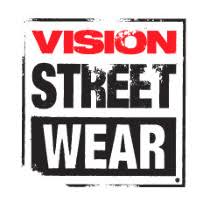I’ve been following via Twitter and blogs this week talk about the challenges and obstacles we face in the web world of higher education. Mark Greenfield started the conversation here, and Nikki Kauffman continued things here. Michael Fienen has a similar post about why higher ed is great here. Good to see we have some different reasons.
I agree with a large number of the points people have made about our struggles as web folks, but I wanted to also take a few moments to talk about why higher education is an awesome place to work. Seriously. It’s awesome.
1. Billable Hours
 Well, lack thereof.
Well, lack thereof.
I worked at an advertising agency for nearly two years and a web development shop for a spell before that, and believe me when I say I don’t miss tracking every single quarter hour and what time was spent on what job for what client. We often gave the client a quote based on a number of hours, and that means we had to the work quickly and often didn’t have the opportunity to research a new framework, jQuery neatness or tool that could solve a problem because the client wasn’t going to pay for that learning. Want to make a change or need more time? Well, that’s a change in scope that required a “Scope Change” document that the client had to sign off on.
In higher ed, I think we have more opportunities to take a moment to think about a project and find what the best tool for the job is.
2. Collaboration
One of things I love about working in higher education is that I get to work with all sorts of different offices around campus, all who work with different audiences. Same goes for faculty. I’ve had the chance to learn about so many things that normally I wouldn’t even be exposed to.
I came into higher ed knowing nothing about the behind-the-scenes process in admissions, alumni and donor relations, athletics, student involvement and much more. I’ve tried to be a sponge and soak it all in, and then applying that knowledge where needed. All those nuggets and acronyms and tricks of the trade will very much help me in the future.
3. Vision Street Wear
 Unlike web development in the private sector, I get to be involved in the creative process more, whether its how code is developed, a way to manage data, the colors on our new WordPress theme or the overall branding package of my college on the web.
Unlike web development in the private sector, I get to be involved in the creative process more, whether its how code is developed, a way to manage data, the colors on our new WordPress theme or the overall branding package of my college on the web.
Often, in client development, you must work within a pre-determined set of standards. That’s okay, but having the chance to be creative is refreshing and keeps me sharp. Seeing your work be featured front and center is nice for the ol’ ego.
4. C.R.E.A.M.
 Ok, it’s a fact we aren’t paid what we’d be paid if we worked in the private sector, but look beyond just the number that is your salary.
Ok, it’s a fact we aren’t paid what we’d be paid if we worked in the private sector, but look beyond just the number that is your salary.
We often are able to take undergraduate and graduate classes, often for free. That same perk often applies to our partners and children as well. That’s huge – how many of you have a Master’s or MBA that you got for free? That’s worth tens of thousands of dollars right there.
There are also other very nice perks – generous vacations, decently priced benefits (this one is a bit tricky depending on institution), often a very nice 401k match, use of campus facilities like the gym, bookstore discounts, the opportunity to see speakers on a variety of topics and more. I’ve seen a US Senator, a sitting Vice President, famous authors, Ben Folds, Bill Clinton, The Roots and oh yeah, Wayne Brady. For free, in my small rural town.
5. Lots of different types of projects
I love higher ed because I get to do a whole lot of everything. Need that web app written? That’s me. Need a graphic designed? Me. Email marketing? Me. Video shot, edited and posted to YouTube? Me. Need an update posted to Facebook? I’m your guy. Getting to wear many hats keeps me sharp and keeps me continually learning new things.
In the private sector, you’re often the designer or the developer or the client account manager and ne’er the three (or so) shall meet, except maybe in scope change meetings (see above.) I can’t think of too many other jobs where I’d get to wear so many fine chapeaux.
6. Students
Working with students is great. Yes, sometimes they are flaky and unreliable, especially around finals time, but overall, they are more than cheap labor. They can keep you in touch with what’s going on “on the ground” when it comes to the services your college offers, especially in the social media realm.
Do students do some grunt work? Sure. That stuff is just as important as a redesign or CMS – updating web pages and adding new information is maybe the most important task we do. By having students do the easy, yet sometimes annoying stuff, it frees us up to think about the big picture or go shoot that video (see above.)
Here’s the other thing. I have several students who have worked for me over the last seven and a half years here go on to work in the web development field or attend graduate programs in computer science. Especially for those who went into the workforce, their time with me looks very good on a resumé. They spend 3 or 4 years doing real-world, production work on a site that gets 2+ million visits a year. Not many students coming out of college who only did course work can say that. My students have shot video, built web applications, done HTML updates, designed things in Flash and so, so much more. We are preparing these kids for the workforce.
One more thing about students. Working with students keeps me feeling young. Okay, I’m 33, I’m not that old, but whether its my work study students or the kids I work with as advisor to the radio station here on campus, you can’t help but get caught up in their exuberance and energy. Often, the most fun we have is just sitting around talking. We talk about sports and movies and Modern Warfare 2 and the web and music. We have fun. Fun = key.
7. There are no small parts, only small actors
I like to think that by working in higher education, we’re making the world a slightly better place. Whether we’re working with admissions or advising or student life or athletics or alumni, we’re having a direct impact on the lives of thousands of young people every day.
We’re helping to hopefully point them in the right direction when it comes to their careers and being good citizens. Am I alone responsible for all that? Goodness no. I am but one small instrument. Put it all together, and I think I can safely say we’re making a positive change in the world.
Your incoming class this fall could have the next Steve Jobs. Or the next Mark Zuckerman. Or the next Steven Hawking. Who knows. That’s part of the fun.
So that’s it. What am I missing? I’m sure there are many more pluses when it comes to working in higher education.

Thanks for this post — it summarizes well our roles in highered mar-comm-pr!
Great article. I count my experience in Higher Ed web development as some of the best I’ve had for all the reasons you mentioned. Also, +1 for Wu Tang reference.
Many people argue that it is the toughest for many of the same reasons. What can we do to overcome the challenges and exploit the advantages? http://bit.ly/d1Y1r5
Preach it, brother! From a faculty perspective, it’s a pretty sweet gig, too – and I’ve done enough other things to appreciate what I have now.